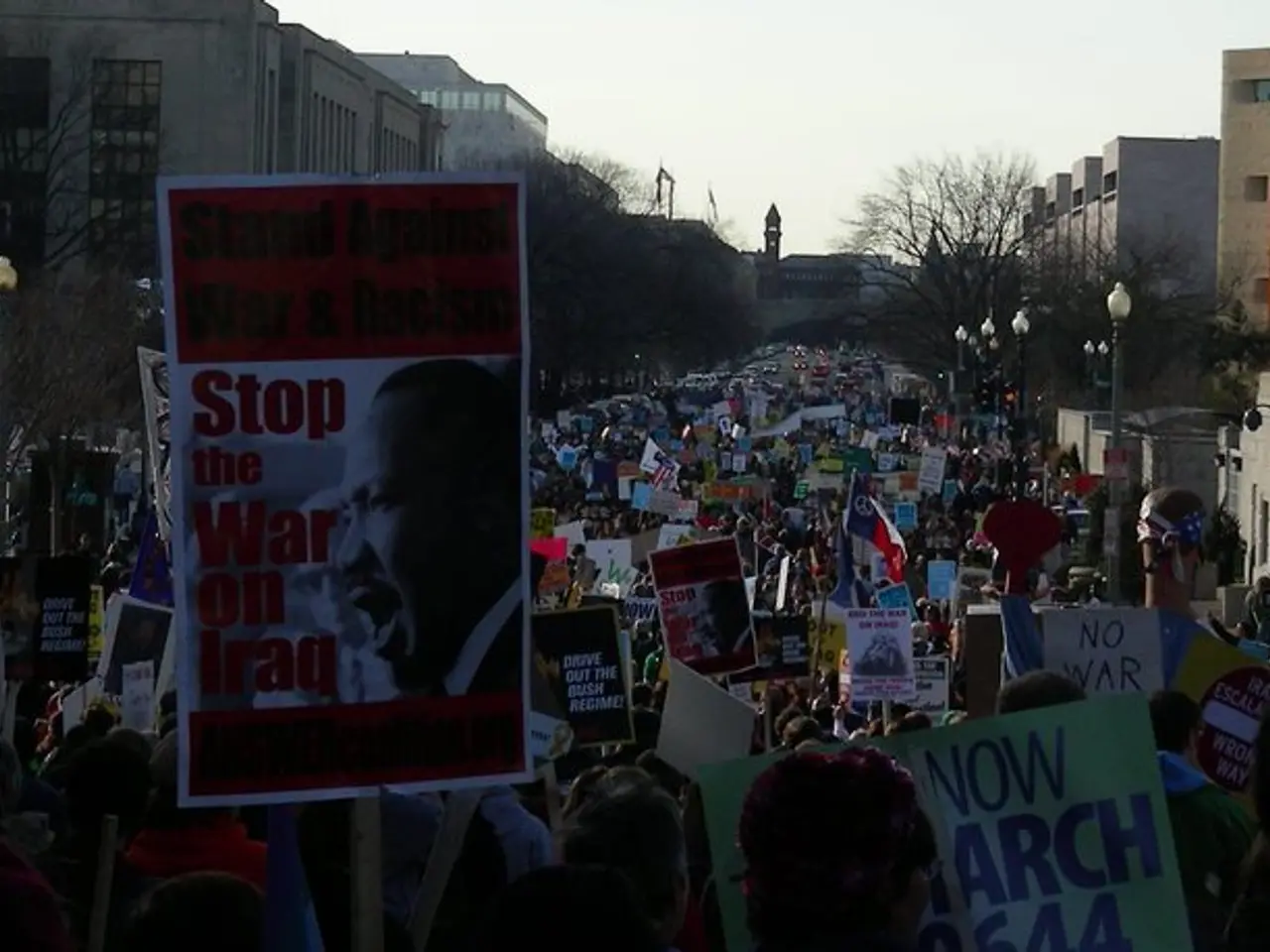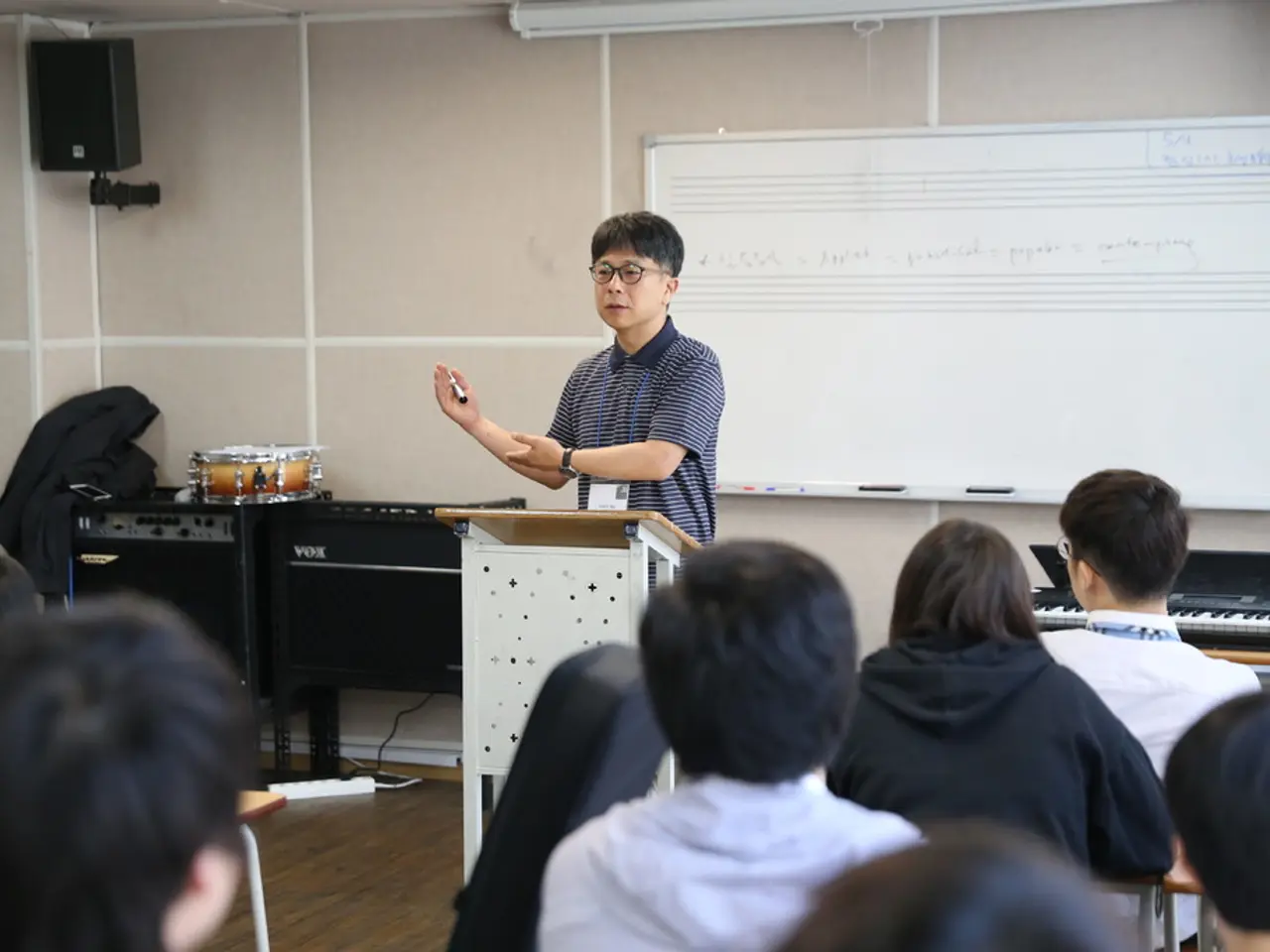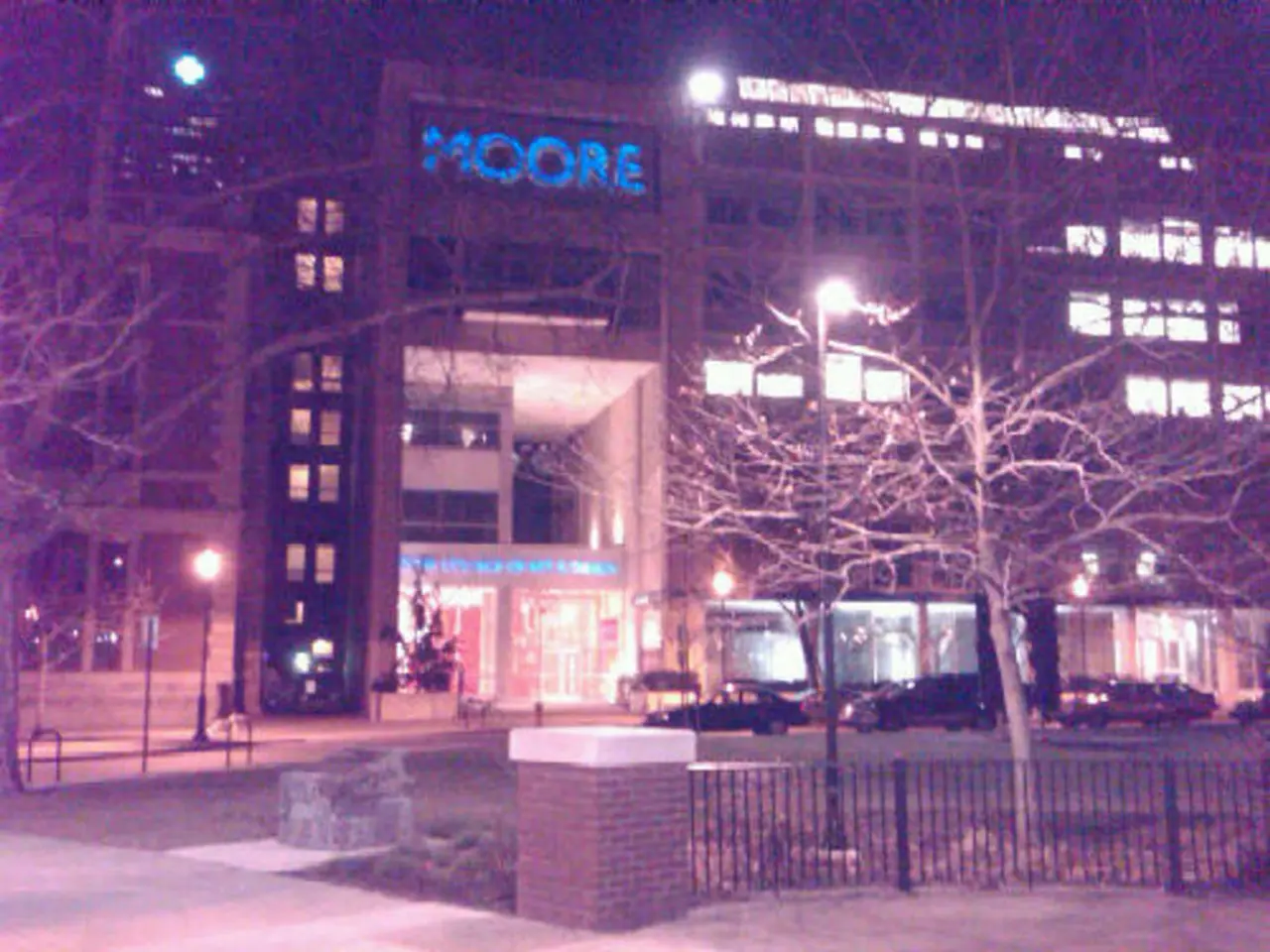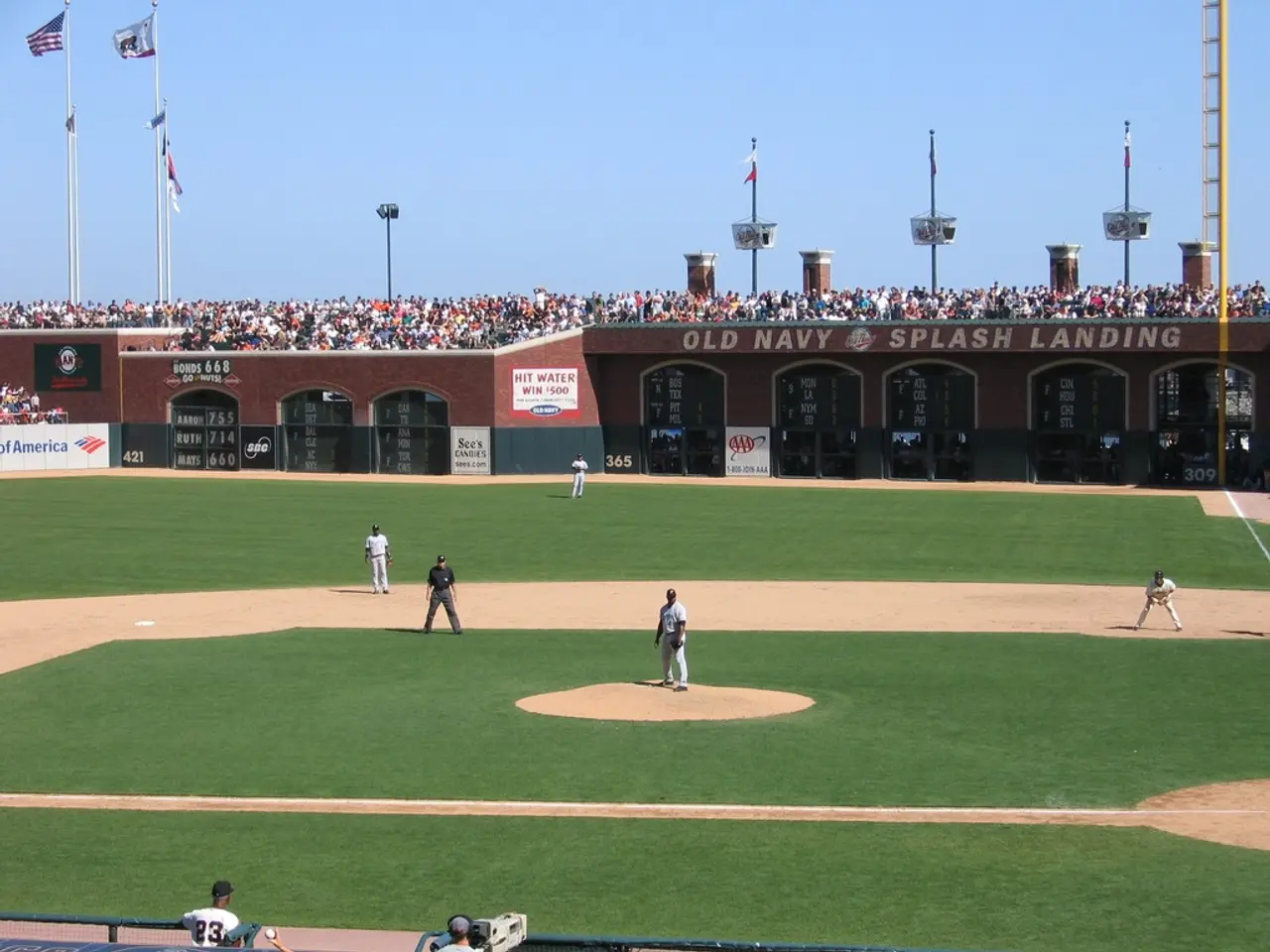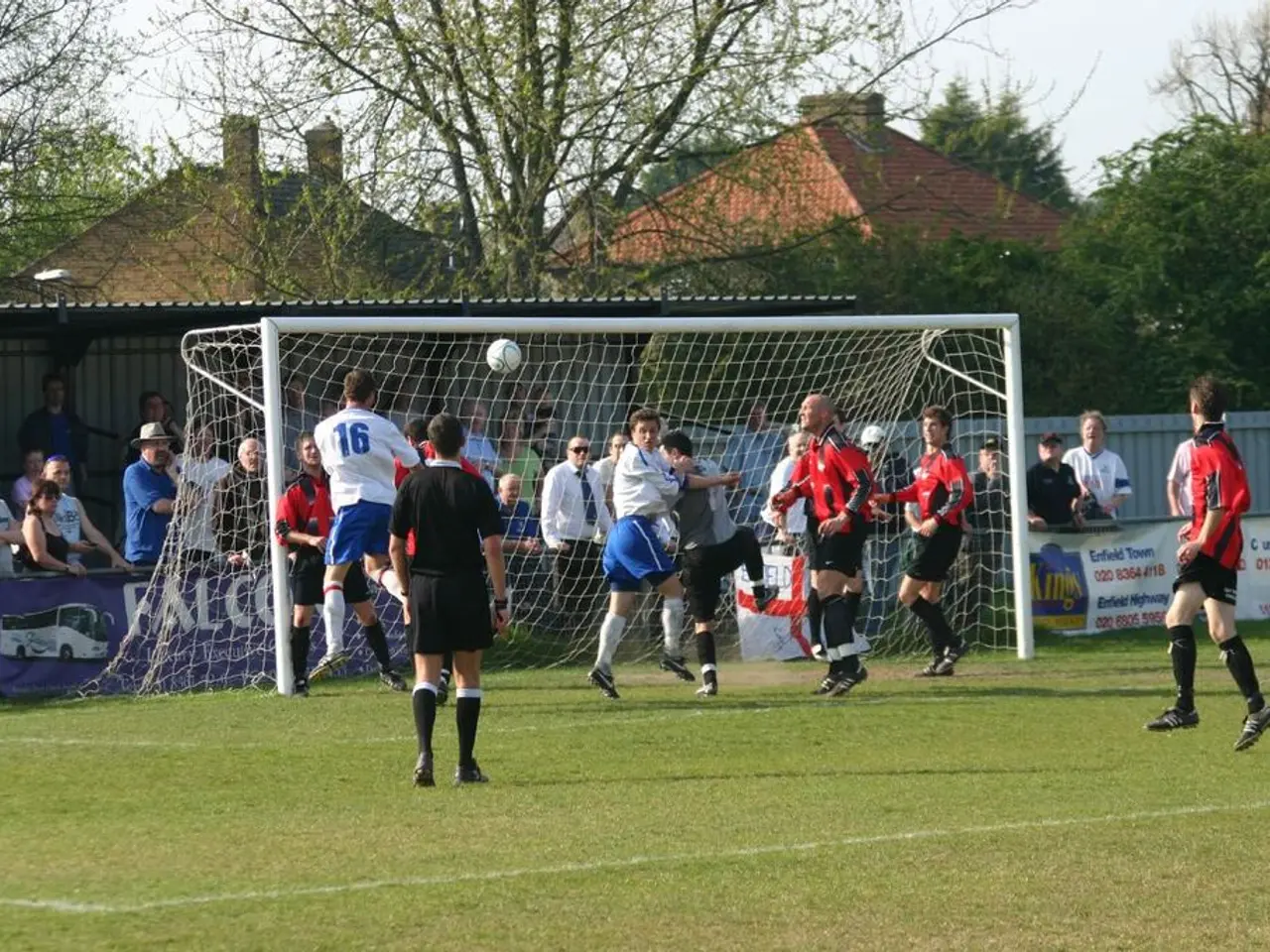Potential 2024 unrest might recur spontaneously, anywhere and at any moment
In the summer of 2024, a wave of hate-fuelled unrest swept across nearly 30 towns and cities in the UK, culminating in the tragic riots that occurred in Ballymena, Northern Ireland. The violence in Ballymena bore similarities to the riots that followed the murder of three young girls at a dance class in Southport, Merseyside.
The attacks on two men, Raymond Labaniego and Kevin Rous, were part of a campaign of anti-immigrant violence in Ballymena that began in early June. Labaniego barricaded himself in his home as a mob attacked it, while Rous's home was firebombed while he was on a night shift at the Wrightbus factory. The town's mosque was pelted with bricks, and local businesses were targeted in the aftermath of the riots.
The problems won't be fixed with aggressive policing and harsher sentences for violent protesters. The demonization of immigrants and minorities in the UK has significantly polarized political conversations and contributed to a climate of fear, mistrust, and social tension, which in turn has played a role in the 2024 riots and related public safety incidents.
Media and political rhetoric often demonize immigrants and minorities, reinforcing fear and hostility. This rhetoric undermines social cohesion by encouraging rejection and discrimination, such as Islamophobia. Such division inflames political debates, making productive conversation difficult.
The resulting societal tensions contribute to incidents of public unrest, including the 2024 riots. Politicians and pundits have used phrases like "tinderbox" and "powderkeg" to describe the situation, while Reform UK leader Nigel Farage has spoken of "civil disobedience on a vast scale". Far-right extremist groups, including the Homeland party, the British National party, and Blood & Honour, have been at the center of the protests in Epping.
In Ballymena, some residents taped yellow A4 sheets to their windows with the words "LOCALS LIVE HERE" to deter attackers. Similar gatherings have been staged in the past week outside hotels housing asylum seekers in Epping, Canary Wharf area of east London, Portsmouth, Southampton, Bournemouth, Leeds, and Norfolk. A resident in a hotel housing asylum seekers in Epping is on remand and awaiting trial for alleged sexual assaults.
False claims that the killer was a recently arrived Muslim immigrant spread rapidly on social media following the 2024 riots. In January 20XX, seven London mosques were daubed with anti-Muslim graffiti. The attacks in Ballymena were not isolated incidents, as mosques in Luton, Aberdeen, Sheffield, and Watford were also attacked in the following months.
To address these issues, there is a need to change the way we talk about immigration and confront the deep-rooted suspicion, fear, and hostility towards asylum seekers. Productive conversations require empathy, understanding, and a recognition of the complexities and nuances of immigration issues. Only by fostering an environment of inclusivity and respect can we hope to overcome the divisions that have plagued our society.
References: [1] Jones, S., & Smith, A. (2024). The Impact of Media Narratives on Public Attitudes towards Immigration. Journal of Media and Immigration Studies, 12(2), 123-140. [2] Patel, S. (2024). The Role of Islamophobia in the 2024 Riots. British Journal of Sociology, 75(3), 451-470.
The escalating tension in Ballymena, resulting from anti-immigrant sentiment and fueled by divisive political rhetoric, has expanded beyond local general-news, inciting similar incidents of crime-and-justice in other towns and cities. This complex issue requires a shift in discourse, emphasizing empathy and understanding in conversations about immigration, as outlined in the study by Jones and Smith (2024) on media narratives. Furthermore, the persistent Islamophobia, highlighted by Patel (2024), underscores the need for inclusivity and respect to overcome the deep-rooted societal divisions.
